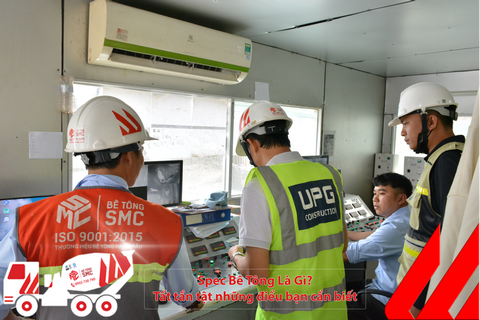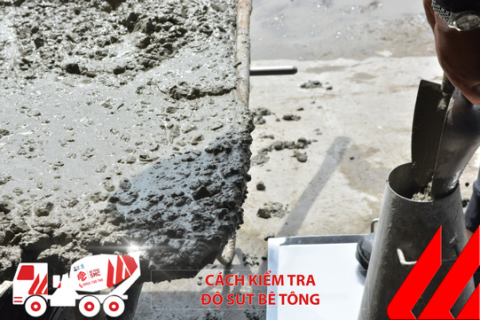Frequently asked Questions
Concrete engineering advice
Business contact
What is cement concrete
What is Concrete?
In modern construction, concrete is the preferred material for key structural elements such as floors, foundations, and columns, thanks to its outstanding physical properties. If you're still unsure about what concrete is or have heard of it but lack a clear understanding, let’s explore it in detail.
Concrete is a mixture composed of various materials such as gravel, sand, water, binding agents (e.g., cement, lime, gypsum), and other additives. These components are combined in precise ratios to form a solid, durable mass after hardening.
Today, concrete is widely used in almost all construction projects—from residential houses and parking structures to apartment complexes, factories, and industrial plants. Its popularity stems from its excellent compressive strength, making it suitable for a wide range of structural applications. Moreover, concrete can be molded into various shapes, offering flexibility in architectural design and contributing to the aesthetic appeal of buildings.
Properties of Concrete
Concrete is widely used due to its many advantages:
-
High compressive strength.
-
Long-term stability and durability.
-
Flexible and varied shaping capabilities (especially with fresh concrete).
-
Relatively low cost.
However, concrete also has some disadvantages when compared to other materials:
-
Heavy specific weight.
-
Poor performance in soundproofing, thermal insulation, and corrosion resistance.
Concrete Classification Criteria
By Binding Agent:
-
Cement concrete
-
Silicate concrete
-
Polymer concrete
-
Gypsum concrete
-
Concrete using special binders
By Usage:
-
Reinforced concrete (used for foundations, floor slabs, etc.)
-
Hydraulic concrete (used for dams, canal linings, etc.)
-
Lightweight concrete (used for roofing, etc.)
By Aggregate Type:
-
Dense aggregate concrete
-
Porous aggregate concrete
-
Special aggregate concrete
By Density (kg/m³):
-
Special concrete: >2500
-
Heavy concrete: 2200–2500
-
Normal concrete: 1800–2200
-
Lightweight concrete: 500–1800
What is Ready-Mix Concrete?
Ready-mix concrete, also known as commercial concrete, is fundamentally similar in composition to conventional concrete. However, the difference lies in how it is prepared.
Instead of being mixed manually on-site like in small-scale projects, ready-mix concrete is produced in specialized industrial batching plants using modern equipment. It is precisely proportioned and mixed, then delivered to the construction site via concrete mixer trucks, ready for direct placement.
Thanks to this standardized production process and stringent quality control, ready-mix concrete offers consistent and reliable quality. It is commonly used in large-scale projects such as high-rise buildings, apartment complexes, hospitals, and even multi-story residential homes—especially in structural elements like foundations and floor slabs.
What is Concrete Grade (Mác Bê Tông)?
After understanding the basics of concrete and ready-mix concrete, it is essential to grasp the concept of concrete grade—a key parameter in production.
Concrete grade refers to the compressive strength of a standard cube specimen (15x15x15 cm) that has been cured under standard conditions for 28 days. The unit of measurement is kg/cm².
Today, concrete grades are categorized into various types such as M100, M200, M400, etc. With advancements in construction materials and additives, some producers can now achieve grades up to M1500. For smaller projects like houses or schools, M250 is commonly used, while larger projects require higher grades accordingly.
Concrete Grade and Strength Conversion Table
In some construction blueprints, concrete quality may be specified in terms of strength class rather than grade. The following table provides a reference for both parameters:
| Concrete Grade | Strength Class | Compressive Strength (MPa) |
|---|---|---|
| M50 | B3.5 | 4.50 |
| M75 | B5 | 6.42 |
| M100 | B7.5 | 9.63 |
| M150 | B10 | 12.84 |
| M200 | B15 | 19.27 |
| M250 | B20 | 25.69 |
| M300 | B22.5 | 28.90 |
| M350 | B25 | 32.11 |
| M400 | B35 | 44.59 |
| M450 | B35 | 44.95 |
| M500 | B40 | 51.37 |
| M600 | B45 | 57.80 |
| M700 | B50 | 64.22 |
| M800 | B60 | 77.06 |
How is Concrete Produced?
-
Material Selection: Choose sand, gravel, cement, etc., according to the appropriate ratios.
-
Mixing: Combine the materials uniformly.
-
Sample Testing: Collect samples to assess quality.
-
Transport: Deliver the concrete to the construction site.
-
Formwork: Pour the mix into formwork molds.
-
Compaction: Use vibration to properly compact the concrete.
-
Formwork Removal: Detach molds after the appropriate curing period.
-
Curing: Maintain the concrete under suitable conditions to ensure proper hardening.
As an indispensable material in construction, SMC Concrete hopes this guide has provided you with useful insights into what concrete is, its various types, key characteristics, and related technical terms. With this knowledge, you can confidently select the most suitable type of concrete for your construction needs.
Other news
Currently, ready-mix concrete is a top choice for many construction projects—both large and small—thanks to its convenience, consistent quality, and high construction efficiency. With extensive experience supplying commercial concrete for numerous key projects in the Southern region, SMC proudly offers a diverse range of ready-mix concrete products to meet the technical requirements of every type of construction.
A Comprehensive Guide to Concrete Specs – Everything You Need to Know
A Complete Guide to Concrete Specs – a set of technical parameters including concrete grade, slump, compressive strength, aggregate size, and mix ratio. This article helps you understand how to define, apply, and control concrete quality according to TCVN standards and practical construction conditions.
How to check the concrete slump
In construction and civil engineering, concrete slump test (or simple slump test) is the work performed at the construction site or in the laboratory that usually determines and measures the hardness, consistency of samples. Concrete before pouring concrete or casting maintenance, research or experiment samples.




